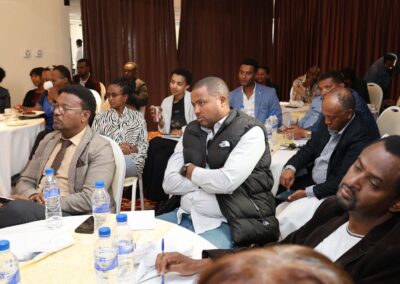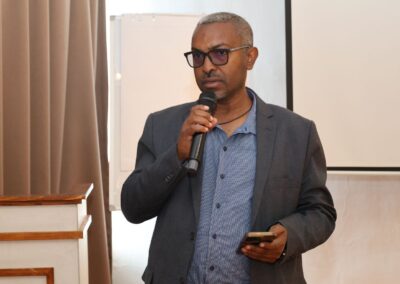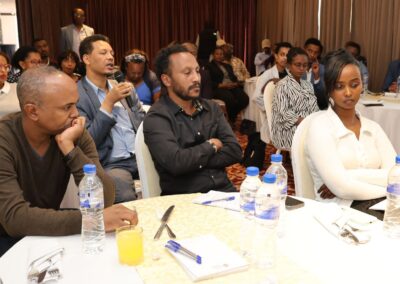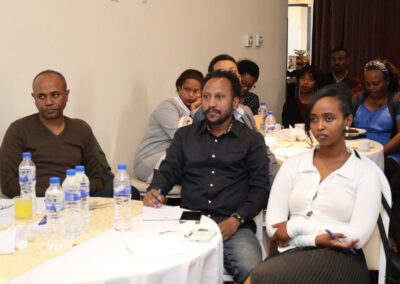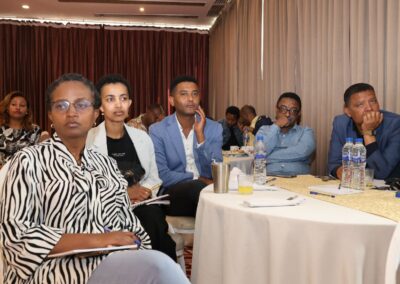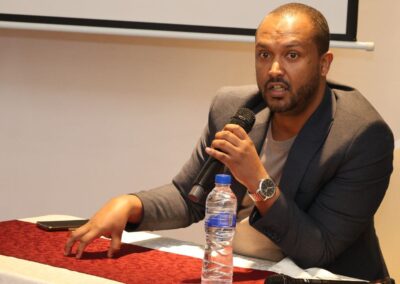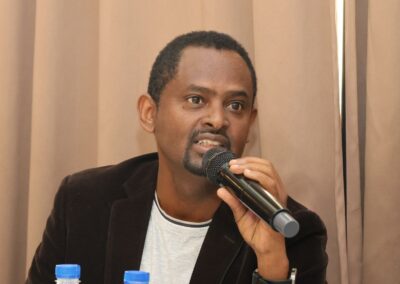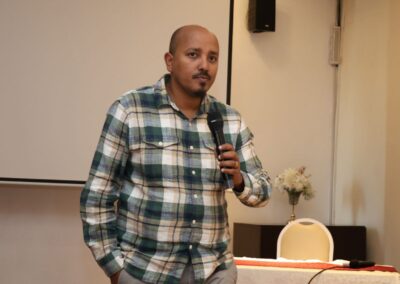Regulatory Body Affirms Commitment to Supporting Media
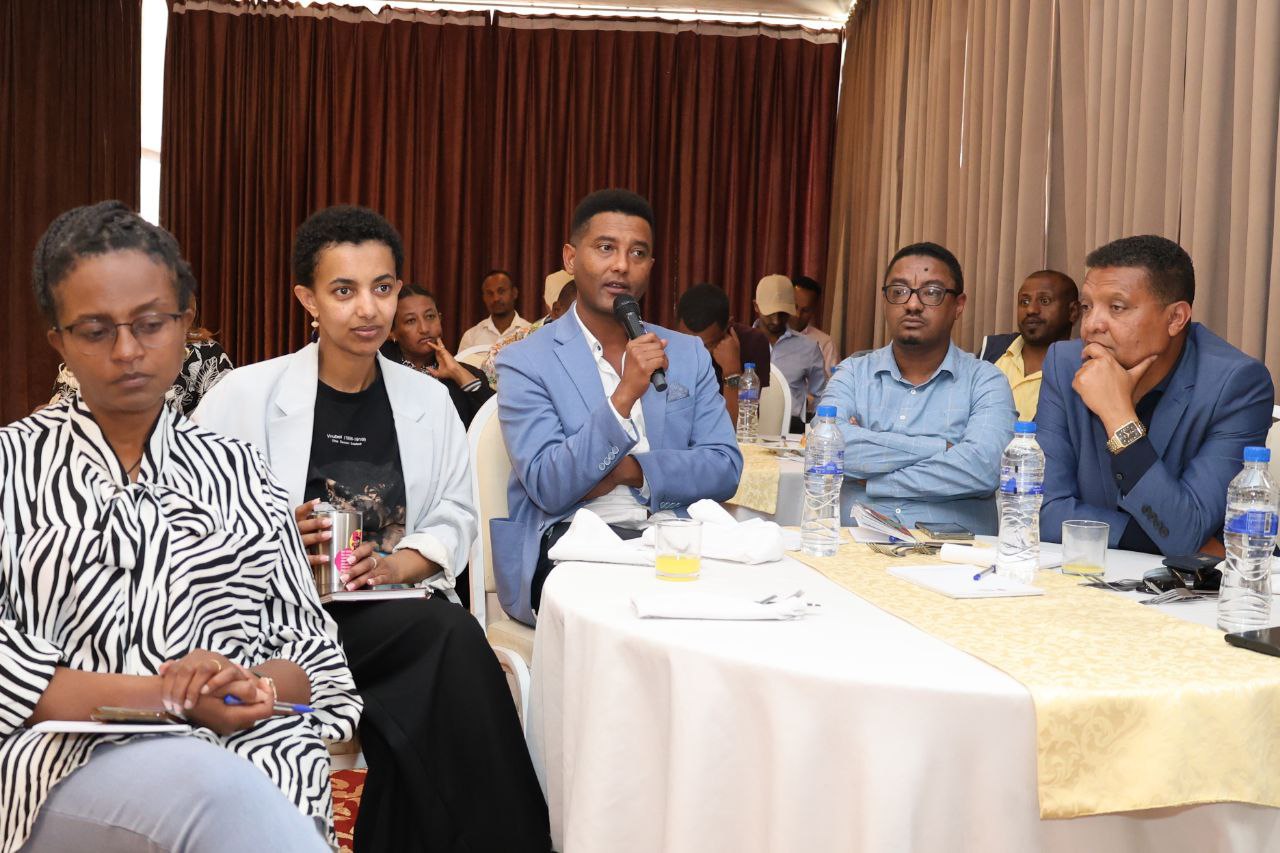
The Ethiopian Media Authority (EMA) has reaffirmed its dedication to enhancing press freedom, ensuring journalists’ safety, and bolstering the financial sustainability of media outlets in Ethiopia. During the Editors’ Breakfast Meeting held on Thursday, December 12, 2024, at the Best Western Plus Hotel, EMA’s Deputy Director General (DDG) Yonatan Tesfaye engaged with news editors and media development practitioners to address key amendments to media regulations and their implications.
The discussions highlighted the potential impact of these amendments on press freedom, journalist safety, access to information, and civic spaces. Participants voiced concerns about the proposed changes, urging EMA to conduct broader consultations and ensure inclusive stakeholder engagement. Yonatan assured attendees of EMA’s commitment to working closely with media houses, professional associations, civil society organizations and the Media Council to foster an enabling environment for journalism. This includes exploring innovative approaches to ensure the financial stability of media outlets and implementing measures to enhance journalist safety.
A key focus of the meeting was the draft amendment to sub-article 1-F of Article 55 of the media law. The current provision exempts media houses from accountability for live transmissions, stating, “…ensure the legality of the content of any program before its transmission by the station with the exception of live transmissions.” The proposed amendment, however, would hold media houses accountable for live content, requiring them to “ensure the legality of the content of any program before and at the time of transmission by the station.” This shift has raised concerns among media representatives, who fear increased operational accountability and potential constraints on live broadcasting.
Other topics discussed included the formation and composition of the EMA Board, the discretionary powers of the Director General, and the operational accountability of media houses. Civil society organizations working in media development echoed concerns about the amendments, emphasizing the need for transparency, integrity, and inclusive consultation in the legislative process. They cautioned that rushed implementation without stakeholder input could undermine the progress made in Ethiopia’s media sector.
The breakfast meeting (organized by Editors’ Guild of Ethiopia, in collaboration with the International Media Support) underscored the importance of collaboration between regulatory bodies, media practitioners, and civil society to navigate challenges and promote a vibrant, independent media landscape. Stakeholders agreed on the necessity of sustained dialogue to ensure that regulatory changes strengthen rather than hinder the role of media in Ethiopia’s democratic development.

